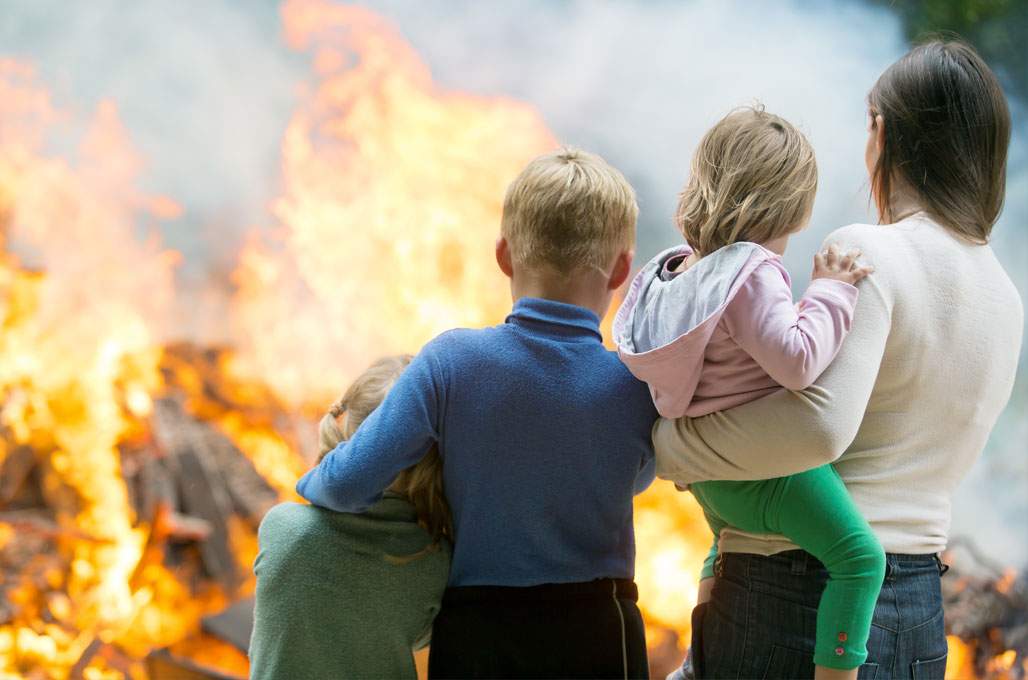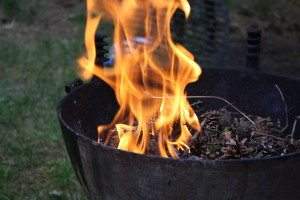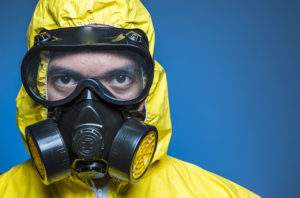Repairing Home Damage after a Summer BBQ Fire

With summer in full swing in Denver, many homeowners find themselves outside grilling, sometimes multiple times per week. While this is a great summertime activity and a nice way to get your family outside, grilling can result in fires if you’re not careful. Here, we discuss how to stop a grill fire in its tracks and how to restore your property after a BBQ fire if you’re not so lucky.
What Causes Grill Fires?
That delicious, fatty meat you use to grill makes for a great meal but also can drip fat (or oil if you’ve been marinating), which causes flare-ups. When using a charcoal grill, you’ll notice flare-ups now and then, as they happen naturally when fat drips onto lit charcoals.
Small flare-ups are not a huge cause for concern. The best way to deal with flare-ups is to quickly grab food with long tongs and move it onto a warming rack or a cold section of the grill. You can employ the two-zone method when grilling to leave a section of the grill cold for exactly this purpose. Only add coals to part of the grill if using a charcoal grill, or keep a couple of burners off if using a gas grill. You can move the food back over to the hot zone once the flare-up has settled down.
The problem comes when a flare-up on a charcoal grill lasts more than a couple of seconds, or when you’re dealing with a grease fire on a gas grill, most likely erupting from a drip tray that has become over-full.
How to Stop a Grease Fire
If it is clear that this isn’t a quick flare-up that is going to burn out on its own, you need to act quickly and calmly to put out the fire. If it has spread to the gas hose or the propane tank is on fire, do not try to handle it yourself. Evacuate the area and dial 911 immediately.
Note the following important steps and facts when putting out a grill fire:
- DO NOT use water to put out a grease fire – it will only cause it to spread
- Remove food only if time allows and it is safe to do so
- Smother the flame by depriving it of oxygen
- First, smother the flame by dumping a box of baking soda or salt on it, if available, or by using a fire extinguisher
- Second, close the grill and any air vents

If you do manage to put out the grill fire, be sure to fully clean the grill before using it again, to remove anything you used extinguishing the flame and to remove excess oil and fat.
How to Recover from a Grease Fire
If the fire grew out of control and spread outside of the grill, then you will need to practice safe and thorough fire damage repair. You may want to call in a Denver fire restoration contractor, but if you want to do it yourself, take the following steps.
Safety First

Of course, get the okay from the fire department before entering the impacted area, but also fully suit up in:
- Rubber boots
- Goggles
- Rubber gloves
- Plastic body suit
- Gas mask
Always be careful and if you think a situation is unsafe, please call in professionals to help you out.
Protect From Further Damage
If your backyard grill fire spread to the point where the walls of your home were compromised, you’ll need to make sure to take steps to ensure the elements don’t cause further damage inside of your home. This is especially important because your insurance company will expect you to take all necessary steps in this regard.
You may need to board up doors and windows, or spread a tarp across any breaches. This will ensure that wind does not cause any embers to light back up, and also will keep rain from causing water damage.
Remove Water
If the fire department was brought in, there is going to be a lot of water wherever the fire was put out. If this was just in your backyard, consider yourself lucky. You will still need to pump this water out so that it doesn’t cause any flooding or foundation issues, but that should be the extent of it.
If you have excess water in your home, you will need to get your hands on an industrial-strength pump to get the water out. You will then need to use a press extractor to get water out of your carpet and carpet padding. Even if the carpet is not salvageable, which is well may not be, it will be too heavy to carry out of your home until much of the water has been extracted.
The drying process in your home will need to continue further once you have addressed soot issues, but getting the bulk of the water out is the most important thing at this point.
Remove Soot
Soot can be difficult to remove, and will take some time. You will want to remove soot from the items in the affected area, and then remove those items and move onto the floor, walls, and ceiling. You can follow these steps for your backyard patio or desk area, as well as fire that impacted the inside of your home.
Visit your local hardware store and get trisodium phosphate, and create a cleaning solution with the trisodium phosphate and water, based on the instructions on the container or those provided by the experts at the hardware store. A common ratio is one tablespoon of trisodium phosphate in a gallon of water.
This solution, a sponge, rubber gloves, and some elbow grease will be the ingredients you need for this process. Discard items that are inexpensive, and refer to this blog for more information on dealing with soot damage to valued possessions and furniture. Check out this video on removing soot.
Remove Smoke Odor
White vinegar is great when it comes to removing smoke odors. You can wipe down your walls with straight white vinegar, and much of the odor will dissipate once it has dried.
Leave activated charcoal or baking powder out to absorb odors from rooms inside of your home.
Depending on the level of fire damage repairs necessitated by your grilling mishap, you may need to bring in fire remediation specialists. Professional fire damage contractors can assess the situation and provide exactly the remediation necessary. A full-service Denver remediation company like Abbotts Fire and Flood will also be able to appropriately handle any potential water or mold damage caused as a result of fighting the fire. Contact us today for a free consultation.
Resources:
https://www.quirkbooks.com/post/worst-case-wednesday-how-put-out-grill-fire
https://www.thespruceeats.com/controlling-grill-flare-ups-334973
https://www.wildwoodgrilling.com/how-put-out-grease-fire-grill/

